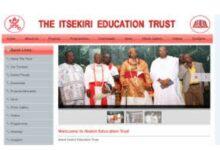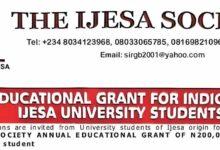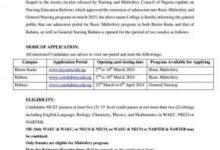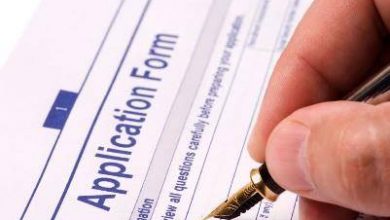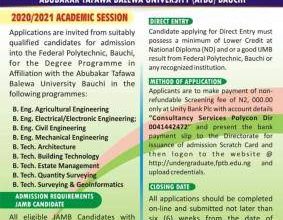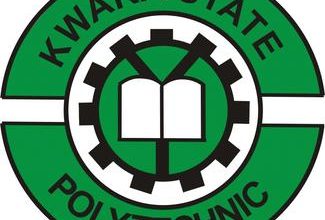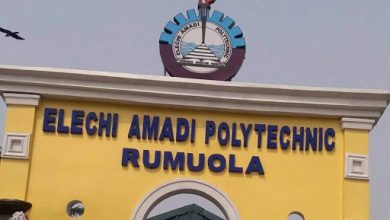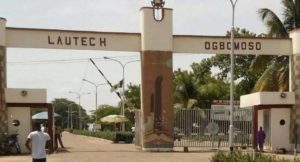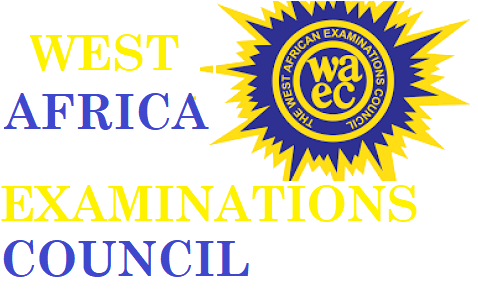
WAEC Syllabus for Igbo
WAEC Syllabus for Igbo. WAEC Syllabus for Igbo is available for all candidates who want to participate in the examination. The West African examination council (WAEC) has officially introduced a syllabus that will guide all the WAEC candidates who wish to write the WAEC examination this year. For a very successful WAEC Igbo examination for this year, you need to check out the available areas of concentration. It has been divided into sections with chapters, followed by the topics to be covered in preparation for the exams. In the WAEC Syllabus for Igbo, you will also see the format of how the WAEC Igbo questions will be presented. Jamb form
There are 2 sections to answer questions from. Paper 1 is Objective and paper 2 contains essay questions. Where paper one (1) carries 1 hour for 60 marks; paper two (2) carries 2 hours for 100 marks. Naira to Pounds
👉 Relocate to Canada Today!
Live, Study and Work in Canada. No Payment is Required! Hurry Now click here to Apply >> Immigrate to Canada
This WAEC syllabus is for both the O’level WAEC and General Certificate Examination (GCE) candidates. Final year students in the senior secondary school level and external candidates are eligible to make use of this syllabus and prepare ahead of the examination. WAEC Syllabus for Igbo
See the full detailed information concerning the WAEC Igbo Syllabus below.
PREAMBLE
Sound knowledge of the Igbo language, literature and culture is a fundamental need for all who desire comprehensive knowledge of the Igbo people. Based on this, the Igbo syllabus is designed for candidates studying Igbo. Adequate care has been taken to ensure that candidates go through the rubrics of the Igbo language. The syllabus covers such important areas of the language as the sound system, grammar, culture, worldview, etc. Jamb Result
OBJECTIVES OF THE SYLLABUS
The objectives of the syllabus are as follows:
- To enable candidates to speak, read and write Igbo properly and communicate effectively in it;
- To familiarize them with the sound system, grammatical structures and other features of the Igbo language;
- To expose the candidates to Igbo culture – customs, institutions, worldview, etc;
- To provide them with the necessary tools needed for creative writing and appreciation of Igbo language and literature.
SCHEME OF EXAMINATION
The examination shall consist of two papers, Papers 1 and 2; both of which shall constitute a composite paper and shall be taken at one sitting. The rubrics of the papers shall be written in Igbo. Candidates will be required to answer all the questions in Igbo using the standard orthography metalanguage. Dollar to Naira Rate
PAPER 1 will consist of sixty multiple choice objective questions all of which should be answered within 1 hour for 60 marks. The paper will have three sections, Sections A, B and C. The questions in the sections will cover the following aspects of the subject:
Section A: Language
👉 Relocate to Canada Today!
Live, Study and Work in Canada. No Payment is Required! Hurry Now click here to Apply >> Immigrate to CanadaSection B: Literature
Section C: Culture
Section A: Language
This will contain thirty multiple-choice questions on language distributed as follows:
Comprehension (2 short passages) – 10 items
Composition/letter writing – 4 items
Sound system – 6 items
Grammar – 6 items
Translation – 4 items
30 items
Section B: Literature
Will contain twenty-two multiple-choice questions on literature distributed as follows:
Basic Principles of Literary Appreciation – 4 items
Oral Literature – Prose – 3 items
Poetry – 3 items
Drama – 3 items
Written Literature – Prose – 3 items
Poetry – 3 items
Drama – 3 items
22 items
In this section, all questions other than those on Basic Principles of Literary Appreciation will be based on the set books for Paper 2.
Section C: Culture
This will contain eight multiple-choice questions on culture distributed as follows:
Customs – 4 items
Institutions – 4 items
8 items
TOTAL: (30+22+8) = 60 items
PAPER 2: Will be a composition test and will also have three sections, Section A, B and C.
The sections will cover the parts of the syllabus indicated below. Npower Recruitment
Section A: Language
Section B: Literature
Section C: Culture
Candidates will be required to answer six out of the total of thirteen questions to be made available. The paper will take 2 hours to complete and carry 100 marks.
Further details on the structure of the paper as well as its requirements are given below.
Section A: Essay
This section will consist of the following three parts, Parts I, II and III:
Part I – Composition/Letter writing
Part II – Sound System
Part III – Grammar
Part I: Composition/ Letter Writing
Candidates are advised not to spend more than 45 minutes on this section. There will be five topics from the following essay types and candidates will be expected to write on one of them in about 300 words:
- Narrative;
- Descriptive;
- Argumentative;
- Expository;
- Dialogue;
- Debate;
- Letter writing.
Part II: Sound system
Two questions will be set for candidates to answer one of them. The questions will test the candidate’s basic knowledge of the following areas: Waec Result
- Igbo Phonemes: Vowels, Consonants, the Syllabic nasal,
- their production, and
- their classification.
- Syllable Structure.
(c) Sound Processes: vowel harmony, vowel assimilation, vowel elision and consonants elision.
(d) Tone and tone notation.
(e) The Igbo alphabet.
Part III: Grammar
Two questions will be set for candidates to answer one of them. The questions will test candidate’s knowledge of the following areas:
- Spelling rules.
- Word formation.
- Igbo dialects and Standard Igbo.
- Loan words.
- Igbo metalanguage (new words).
- Word classes: The noun, verb, pronoun, conjunction, preposition, etc.
- Grammatical categories: tense, number and person.
- Phrases and Clauses: their types and functions.
- Sentences: their constituents and types.
- Sentences containing Direct and Indirect Speech.
- Lexis and Structure.
- Punctuation marks.
Section B: Literature
This section will consist of two parts, Parts I and II as follows:
Part I: Oral Literature – Prose, Poetry and Drama
Part II: Written Literature – Prose, Poetry and Drama
Part I: Oral Literature
Three questions will be set for this part and candidates will be required to answer only one of them. All questions in this section will be based on the prescribed texts.
In this part, candidates will be required to have basic knowledge of the following:
(a) Definiton and characteristics of oral Literature
(b) Classification and functions
(c) Literary devices
(d) Folktales (ifo)
(e) Anecdotes (ụkabụilu)
(f) Legends (nkọkịrịkọ/akụkọ dike)
(g) Myths (nkọmịrịkọ/akụkọokike/mmalite)
(h) Poems (abụ)
(i) Songs (uri)
(j) Proverbs (ilu)
(k) Riddles (agwụgwa)
(l) Chants (mbem)
(m) Oral drama (ejije ọnụ)
(n) Tongue twisters (okwuntụhi)
Part II: Written Literature
Three questions will be set for this part and candidates will be required to attempt only one. All questions in this section will be based on the prescribed texts.
Section C:Culture
Two questions will be set on culture and candidates will be required to attempt only one.
Candidates should be familiar with Igbo customs and institutions as aspects of the culture.
The following areas will be covered.
Customs – Omenala
(a)i. Njirimara ndị Igbo-asụsụ, ejiji, omenala, ekpemekpe , agbambọ, dg.
- Ekele ndị Igbo n’oge dị icheiche.
(b) Mmemme -ọjị, ịtụ nzụ, ịkwọ aka ụtụtụ, ịgọ ọfọ, dg.
(c) Nnabata ọbịa.
(d) Ọmụmụ nwa – ile ọmụgwọ, ibi ugwu, ikupụta nwa, ịgụ aha, ịzụ ahịa nwa, ịhụ eze, dg.
(e) Nkwenye – ịlọ ụwa, ọgbanje, nrọ, ihi/isi anụ, ịha/ịchụ mmiri, dg.
(f) Emume – ọfala, ịbọ ụzọ, ịwa ji/iri ji, igbu ewuukwu,iru
mgbede, ịwa akwa, akwamozu, ịgba mkpe, ịgụ afọ, mbarị, ụdara, dg.
(g) Egwuregwu – egwu ụmụaka, ịgba/ịchụ oro, ịtụ okwe, ịzụ nchọrọkọtọ, ịkpọ okwe,
mgba, ịkpọ ọga, okoso, egwu ọnwa, dg.
(h) Nsọala/Arụ – ihensọ, ebensọ, anụnsọ, osisinsọ, ime ibeeṅe.
Institutions – Ewumewu
(a) Ewumewu ọchịchị – ezinaụlọ, ndị eze ọdịnala, nze na ọzọ, ụmụọkpụ/ụmụada, otu ọgbọ, otu nzuzo, otu inyomdi, ụmụnna, ogbe, obodo.
(b) Ewumewu mmekọrịta mmadụ na ibe ya – alụmalụ, ezinaụlọ, ịgọ ọgọ, nwanwa/nwadiala, ịgba ndụ, ịgba orikọ
(c) Echichi – Lọọlọ, Iyọm, Ọmụ, Ezeji, Jioke, Atama.
(d) Abamaba – Mmọnwụ,Ọkọnkọ, Ekpe, Ọmabe, Odo, Dibịa.
(e) Ewumewu akụnaụba – ike ekpe, iri ekpe, ala na ihe dị na ya.
(f) Akaọrụ – ịkpụ ụzụ, ịgba nta, ịkụ azụ, ọrụugbo, ịkwa nka, ịkpụ ite, dg.
(g) Ewumewu ofufe – ịgba afa, ịchụ aja, dg.
(h) Ngwa ofufe – ọfọ, ikenga, okpesi, ogu, ọtọnsi , dg
(i) Ihe ofufe – Ndịichie, Arụsị, Ikenga, Ala, Mmụọ mmiri, Arụsị/ Agbara
dịka Ogwugwu, Ahịajiọkụ, Agwụ, Amadịọha, Kamalụ, Agbala, Ibini
Ụkpabị, Ojukwu, Igwekaala, Idemmili, dg.
RECOMMENDED TEXTS FOR WASCCE IGBO
YEAR PROSE POETRY DRAMA
1981-83 Oral Qmalinze Abx Na
EgwuregwuQd[nala
Written Urunwa Akpa Uche
JxqObinna Eke Nne Obidiya
1987 Oral Abx Na EgwuregwuQd[nala
Written Chinagqrqm Xtara Nt[ Ugomma
1988 Written Obiefuna AkpaUche AkxFechaa
1989 Written Xwaezuoke Akpa Uche AkxFechaa
1990 Written Xwad[egwu Nkemakqlam Obidiya
1998-2000 Oral Qka Mgba MbemnaEgwu Igbo
Written Dinta AkqBxNdx Qnxkwube
QkpaAkxEriEri AkpaUche OkweAgbaala
2002-2005 Oral Qmalinze Abx Na EgwuregwuQd[nala
Written Jxqchi/Adaeze Xtara Nt[ UdoKaMma
EchicheMiri Emi Ajq Obi
2006-10 Oral Qka Mgba Abx Akwamozu
Written IheQjqqGbaaAfq Echiche NwataBulieNnaYaElu
2011-15 Oral Mbediogu Abu Na Egwuregwu
Written QjaDufuo Dike Uche Bx Akpa AtxrxGa-EpuMpi
LIST OF IGBO TEXTS FOR CONSIDERATION: 2016-2020
ORAL WRITTEN
PROSE Ezennxnx Xwa Ad[gh[ Ka Echere
Agxgx M.O. KanxNgozi F.
Eke Na Egwurugwu NdidiAmaka
Nwadike I.U. Okoro C.L
Qka Mgba AnxGbaaAjqqsq
Iroaganachi J. Qfqmata C.
Xwa Bx Agha
Nwadike I.U.
QdiXkonaMba
Okebalama C.N.
OkeSoroNgwere
Okechukwu Ihejirika
POETRY Abx Akwamaozu AkqnaUche
Xzqchukwu S Echebima G.N
MbemnaEgwu Igbo Akqnuche
Qgbalx F.C. Nwadike I.U
DRAMA Nke M JiKa
Nwaozuzu G.I.
Amagh[ Igbo AsxOyibo
Okeke C.
Nka D[ naNt[
OkoroEmeka
Afere
Chukwuemeka O.
Ka{ Ma Nke A…..
AgxgxM.O
Check and Confirm: How much is Dollar to Naira
